These days, artificial intelligence or AI is no longer a thing of science fiction stories. The growth of AI as a vital tool across various industries proves that the technology is here to stay. AI is used in different fields like marketing, business, eCommerce, medicine, and finance, among others. We must recognize the usefulness of AI and harness its capabilities to make our lives easier.
Here, we’ll see the top 25 companies that have leveraged AI to innovate further. These companies have recognized the potential of technology not just to improve existing products and services but to take them one step further and change the landscape of industries.
Innovative AI Companies for Business and Marketing:
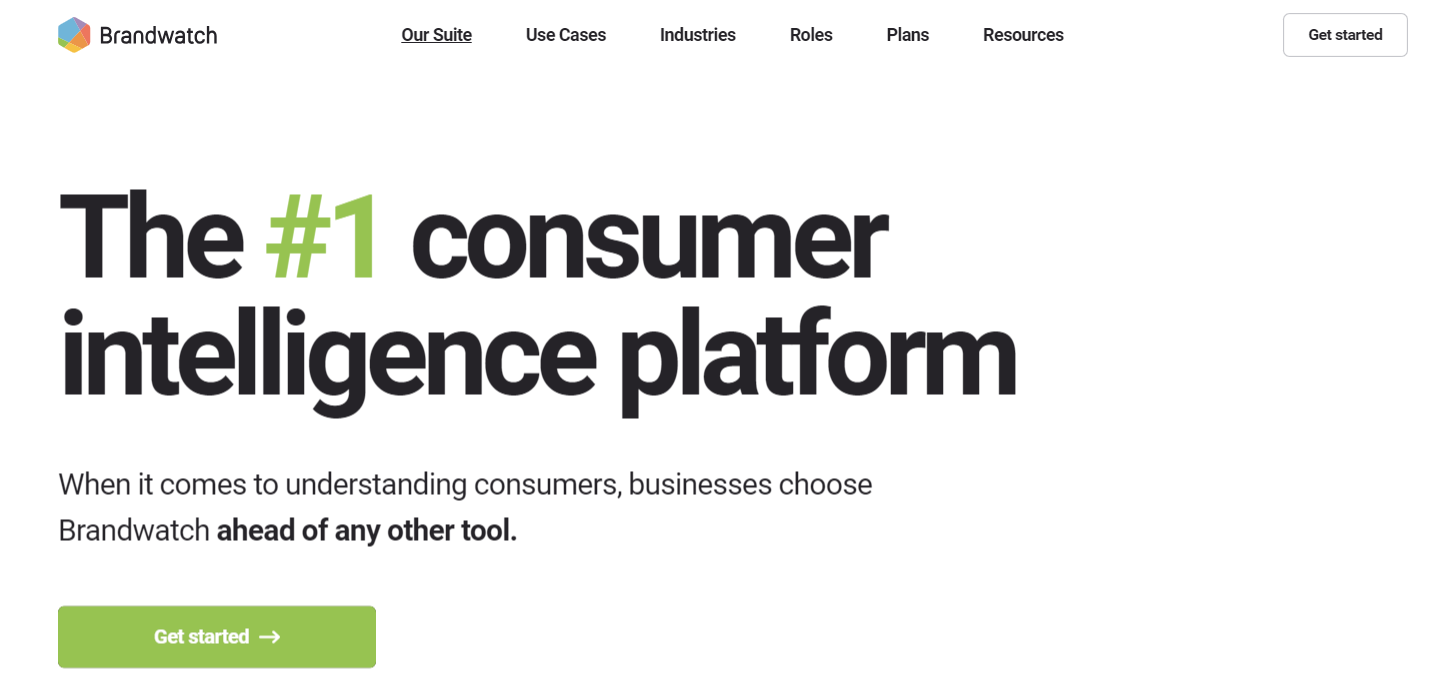
Brandwatch is a company that offers tools for consumer intelligence and social media management. Its AI-powered software monitors social media and other platforms to deliver consumer insights for businesses, allowing it to stay on top of its marketing strategy.
The company uses AI in its consumer intelligence analysis tool to draw relevant insights from social listening. Other AI tools include image analysis, automated market segmentation, and AI-powered search. It has developed its AI technology over 17 years, fine-tuning it to provide high-quality business tools.
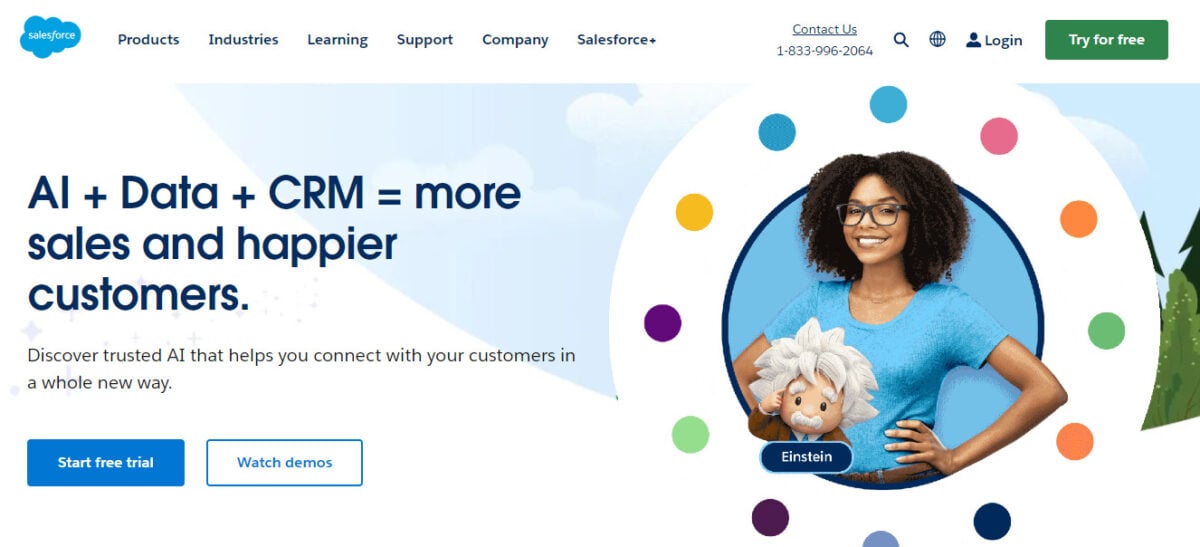
Salesforce is a leading AI customer relationship management (CRM) company today. As a pioneer of the cloud-based SaaS model for CRM, Salesforce has proven over time that they are a company that values innovation through technology. Its goal is to help businesses interact with their customers in deeper and new ways,
It offers a whole range of products in an all-in-one package called Customer 360, and each one integrates Einstein, their AI, into its functionalities to improve efficiency and productivity.
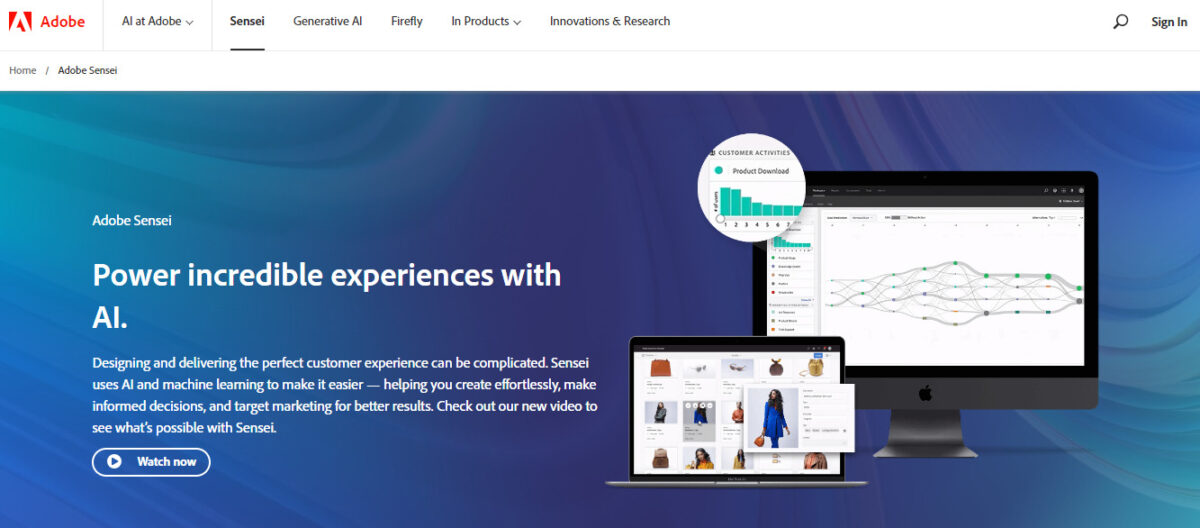
Adobe is more typically associated with creative tools than AI, but the company has a rich history of AI innovation over the past decade. Adobe aims to enhance human creativity and imagination through AI, pushing boundaries and accelerating workflows.
Adobe Sensei integrates AI and machine learning into the company’s marketing and creative products. Its generative AI and the newest AI product, Firefly, are now a part of the Adobe Experience Cloud, so users have more powerful tools.
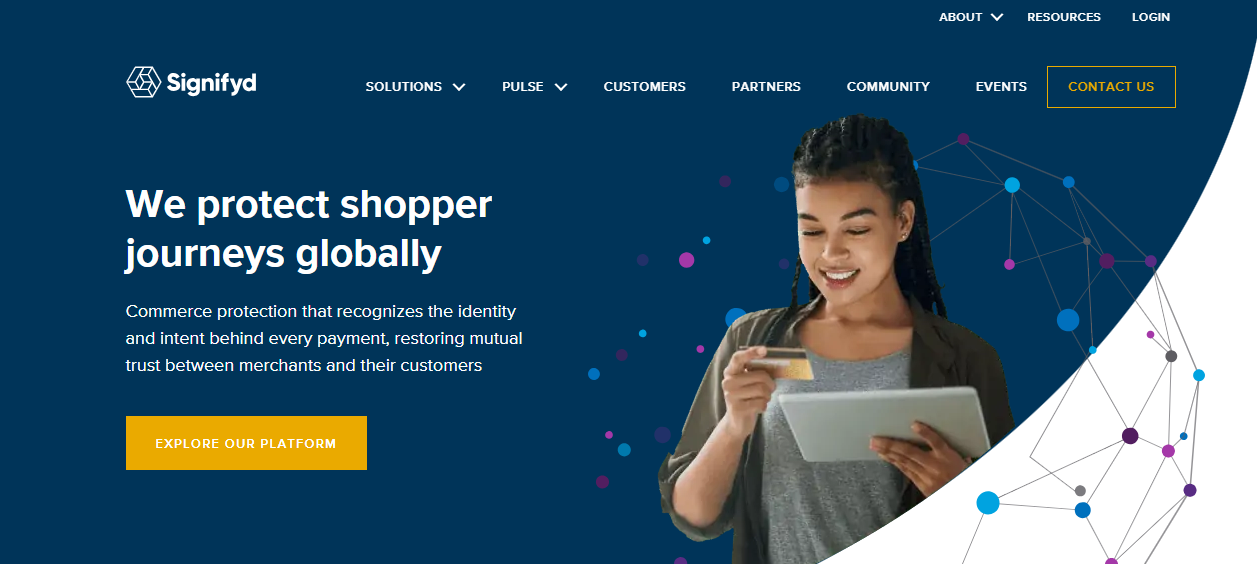
In this era of easy access to information, fraud is an ongoing security issue. Signifyd’s products are geared toward fraud detection and prevention for eCommerce businesses. The platform identifies legitimate shoppers through AI, giving them a faster and more seamless customer experience. Suspicious activity and abusive behaviors are blocked, protecting both merchant and honest customers.

Palantir specializes in advanced data analytics and integration solutions for defense and business. Using artificial intelligence and machine learning, Palantir empowers organizations to harness the full potential of their data, obtain actionable insights, and make data-driven decisions. Because of its possible applications for the military, Palantir’s security is top-notch, with activations of large language models on private networks as a prominent feature of its artificial intelligence platform (AIP).
This is good news for businesses that need to maintain robust data security. Palantir’s innovative AIP enables enterprises to streamline operations, enhance efficiency, and drive growth safely and securely.
Innovative AI Companies for Technology
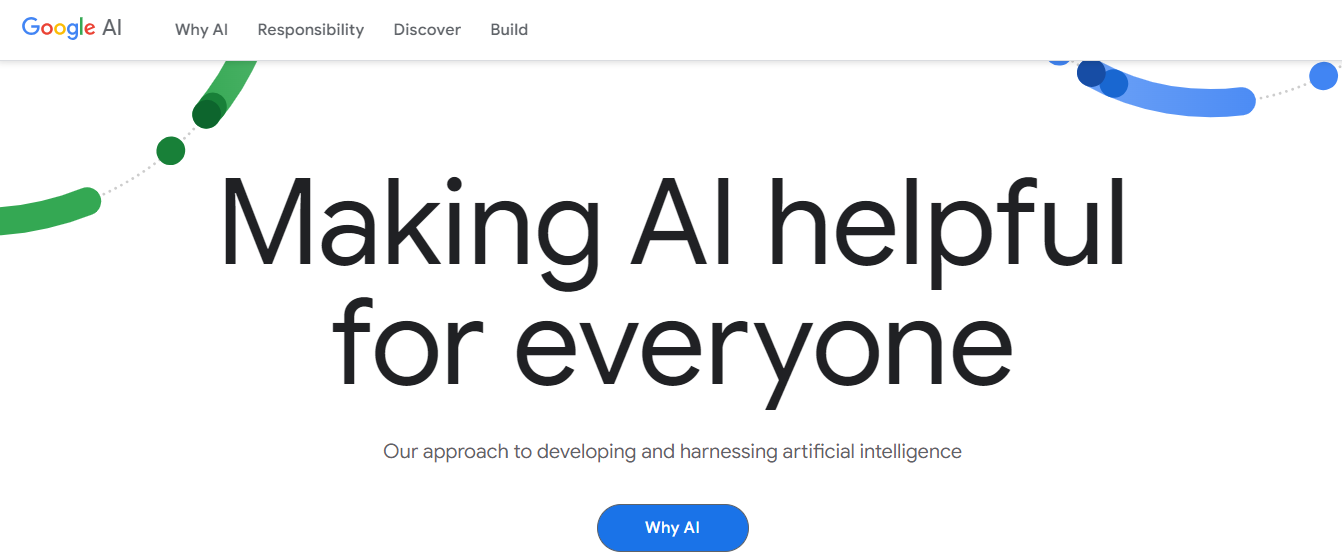
One of the biggest companies on our list, Google is most definitely on board the AI train. Users may have been unaware of it, but Google has used AI for many years as a search engine. Its text translation and speech recognition are AI tools that have been useful to consumers.
But Google is also investing now in AI research. Google AI is the tech giant’s AI-focused division, responsible for the AI products developed for consumers. Currently, it has Bard, a generative AI similar to ChatGPT; PaML API, which works with large language models; and Studio Bot, an AI coding assistant built to help Android app developers.
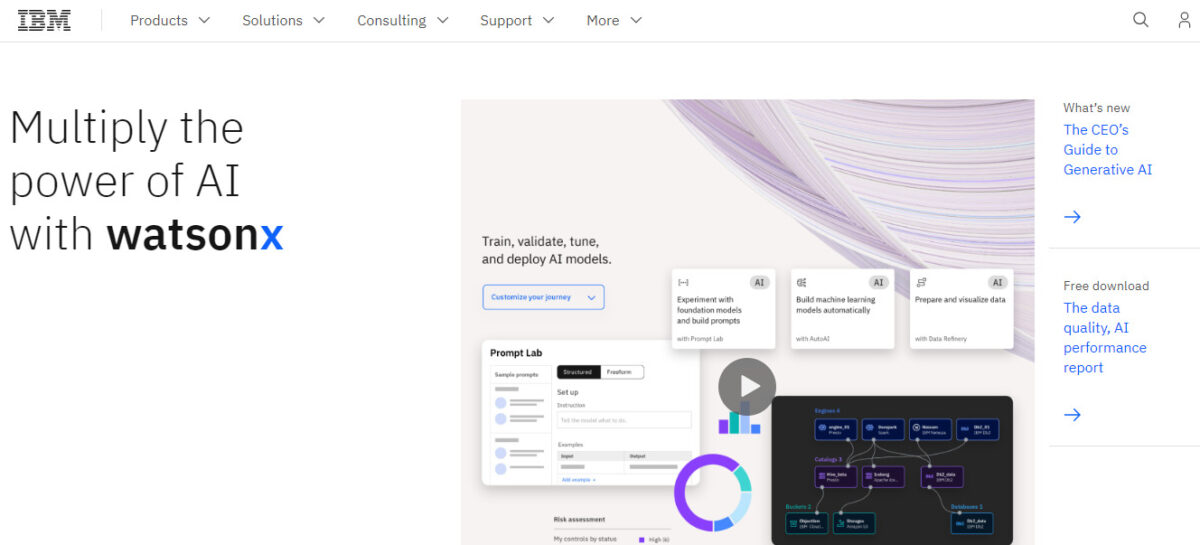
IBM has been a prominent name in information technology for decades, known for hardware and software products. It’s not surprising that it is also at the forefront of AI technology. Its AI and data platform, dubbed “watsonx,” was designed for all kinds of work in different fields, with its core components including generative AI, machine learning, an AI toolkit for accelerating workflows, and a studio for new foundation models.
Even more interesting is IBM’s latest collaboration with NASA to produce the first open-source AI geospatial foundation model to impact climate and earth science research positively. Another application of IBM’s watsonx is in gaming, with the company recently announcing some updates on its partnership with ESPN, bringing watsonx to the ESPN Fantasy Football app with Waiver Grades and Trade Grades.
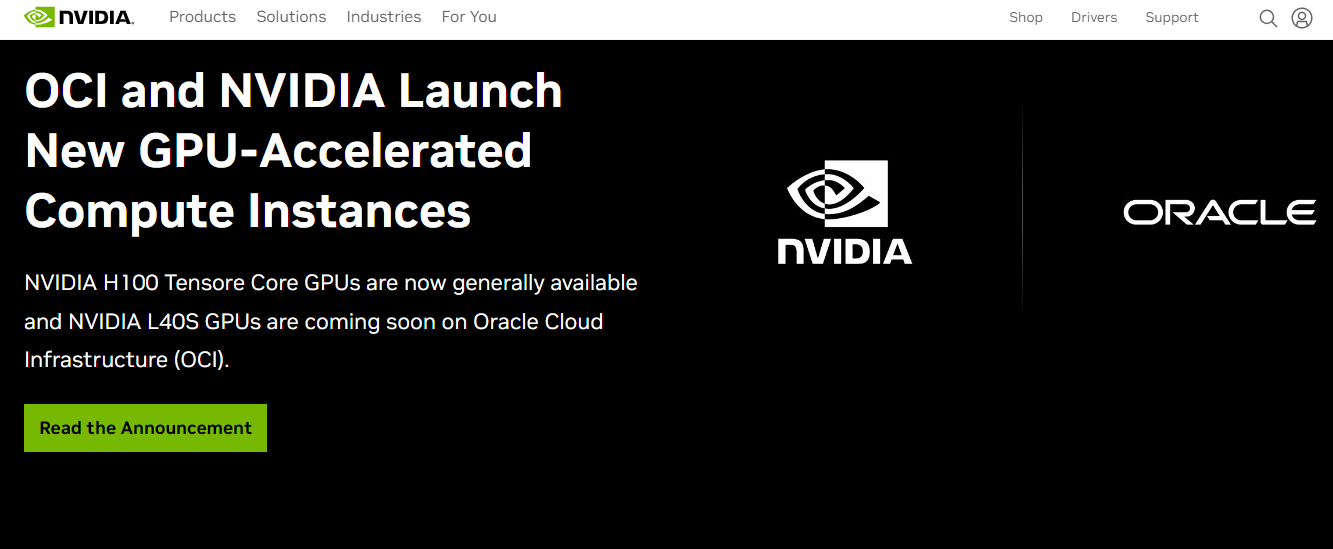
Avid gamers and metaverse experts would surely be familiar with NVIDIA, known for its hardware products, particularly high-end graphics processing units (GPUs). Its expertise in computer hardware continues beyond gaming systems, however.
The engine that powers ChatGPT is from NVIDIA, with the company recognizing the potential of AI in computing early on. It incorporated AI in its primary industry, gaming, developing GeForce RTX in 2018 based on AI research. Today, the NVIDIA RTX is an advanced platform that delivers highly realistic graphics and AI features for games and applications.
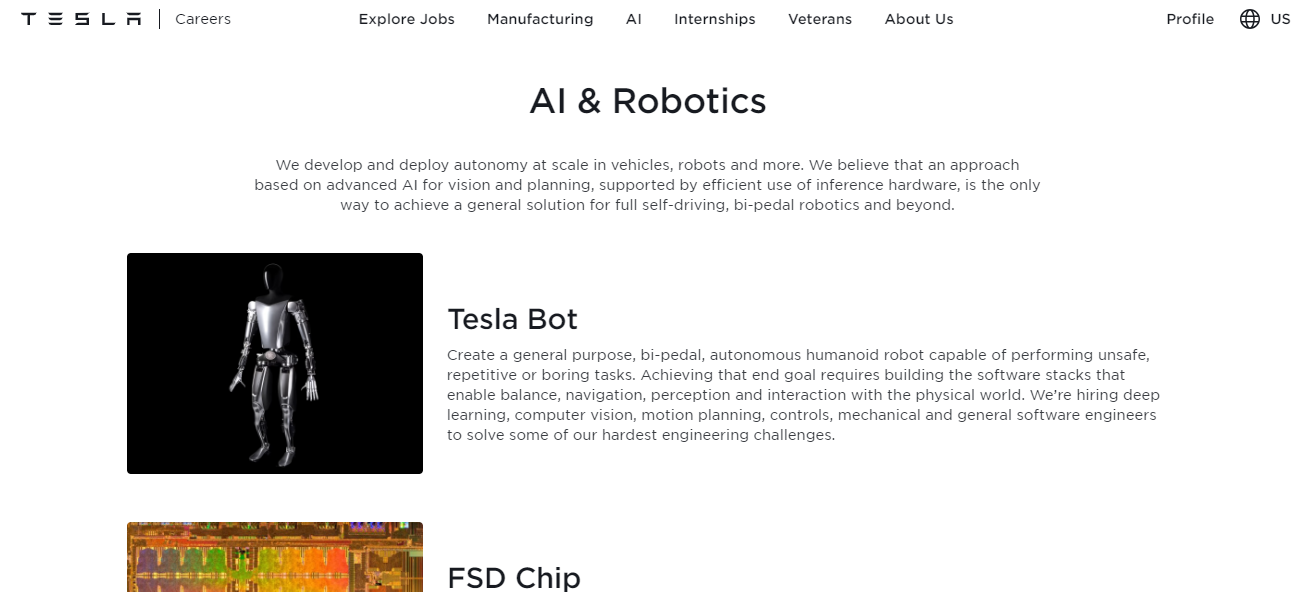
Tesla is, of course, an automotive company known for its high-end electric cars. CEO Elon Musk is also known for his innovative finesse, having co-founded PayPal and SpaceX. Tesla’s AI projects include the Tesla Bot, an autonomous humanoid robot that can perform repetitive, mundane tasks. Closer to its primary mission, Tesla is also working on AI technology to power self-driving cars and advanced driver assistance systems.
Innovative AI Companies for Research and Education
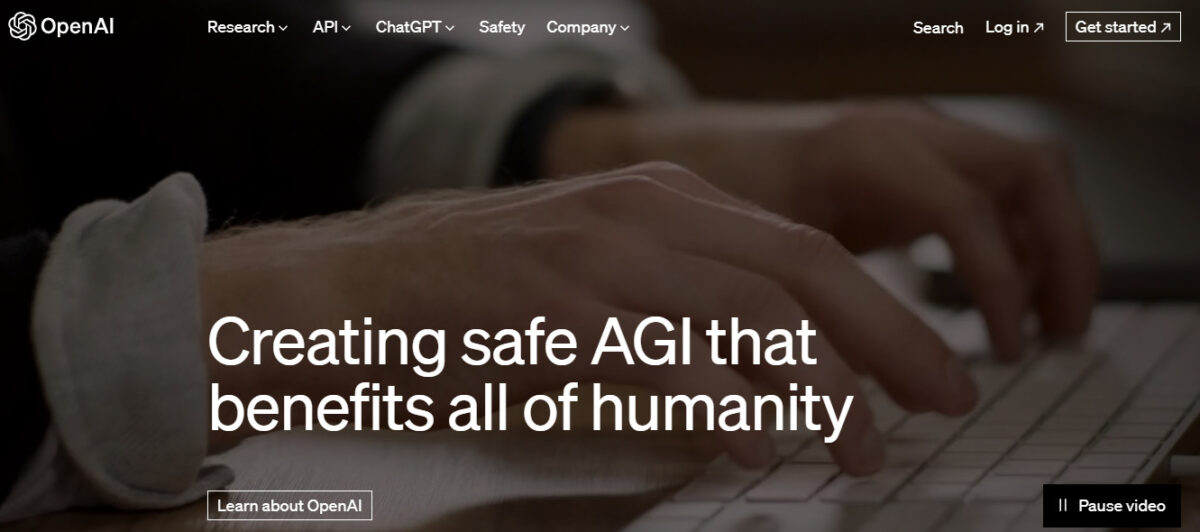
OpenAI entered everyone’s consciousness late last year when they launched ChatGPT, a generative AI chatbot that can produce human-like responses to a user’s prompt or question. It can carry on a conversation, write essays, poems, stories, reports, and even code. ChatGPT’s abilities might be alarming to some, but AI can transform and innovate entire industries when used correctly.
This is what OpenAI’s goal is: to ensure that AI systems are used productively to benefit everyone. Its research focuses on AI’s potential to solve human-level problems through building safe and beneficial artificial general intelligence systems.
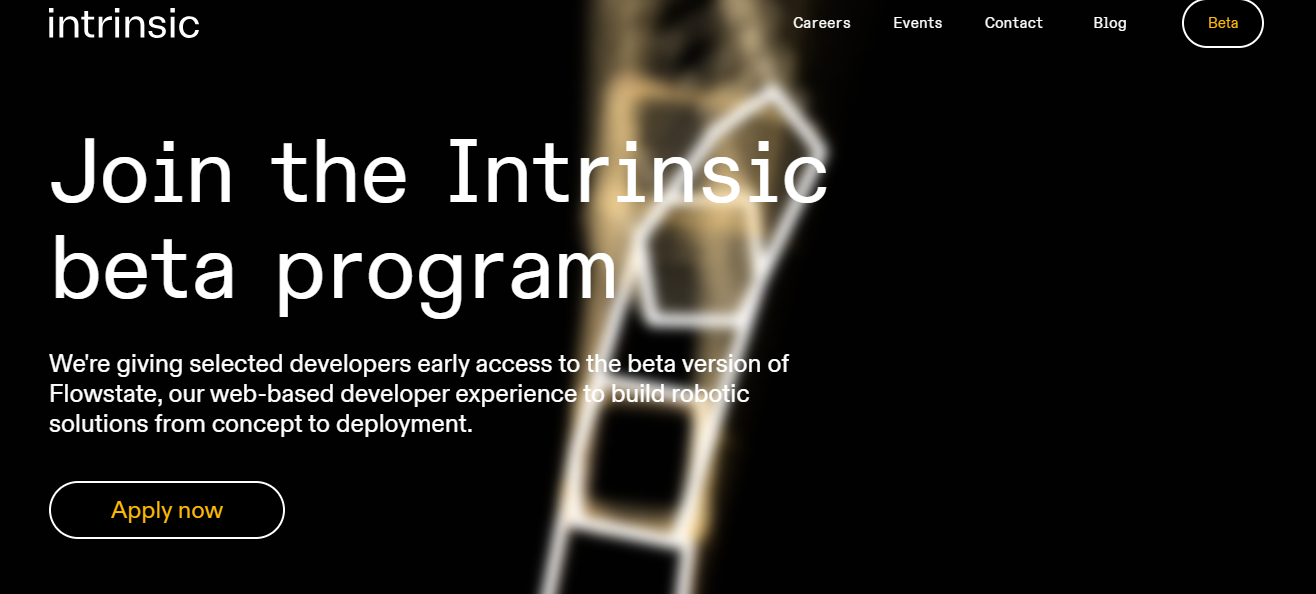
Vicarious was an independent robotics firm acquired last year by competitor Intrinsic. Both firms are now known simply as Intrinsic, with the mission of providing innovative robotic solutions for industrial needs. Intrinsic believes in the value of intelligent software to complement the field of robotics so more people and businesses can use it efficiently. It also aims to make advanced robotics and AI more accessible so developers can continue innovating and finding scalable and secure solutions for robotics system deployment.
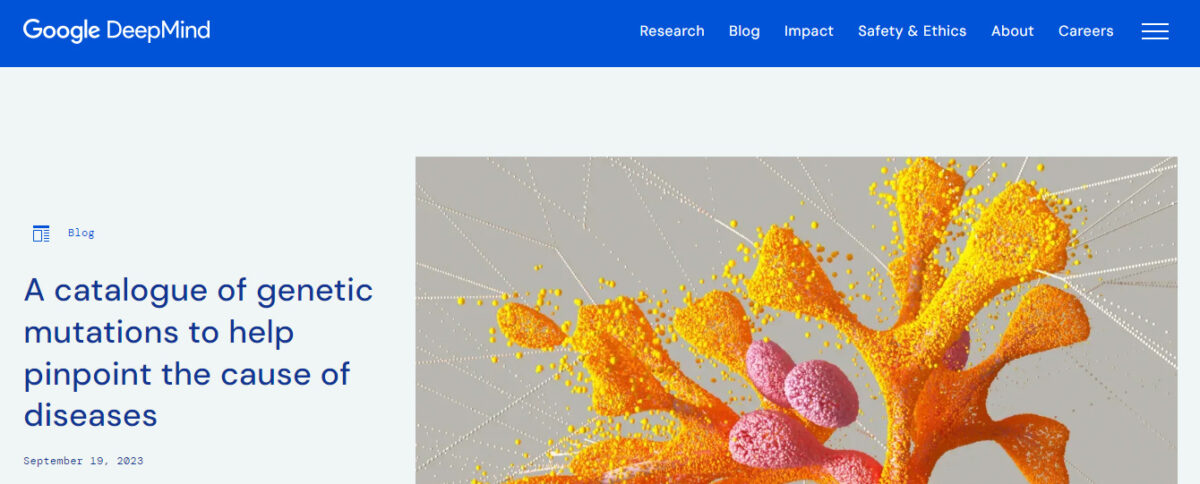
DeepMind is an AI company that early this year merged with Google Brain from the company’s research division. Now known as Google DeepMind, the firm is known for its work in reinforcement learning, training its AI programs to play games like Atari and Go.
But its AI goals extend beyond games. DeepMind works on several AI research fields that can potentially have a massive impact on human knowledge. Through AI fields like robotics, unsupervised learning, generative models, and reinforcement learning, DeepMind is accelerating research on neuroscience, biology, history, and other sciences.
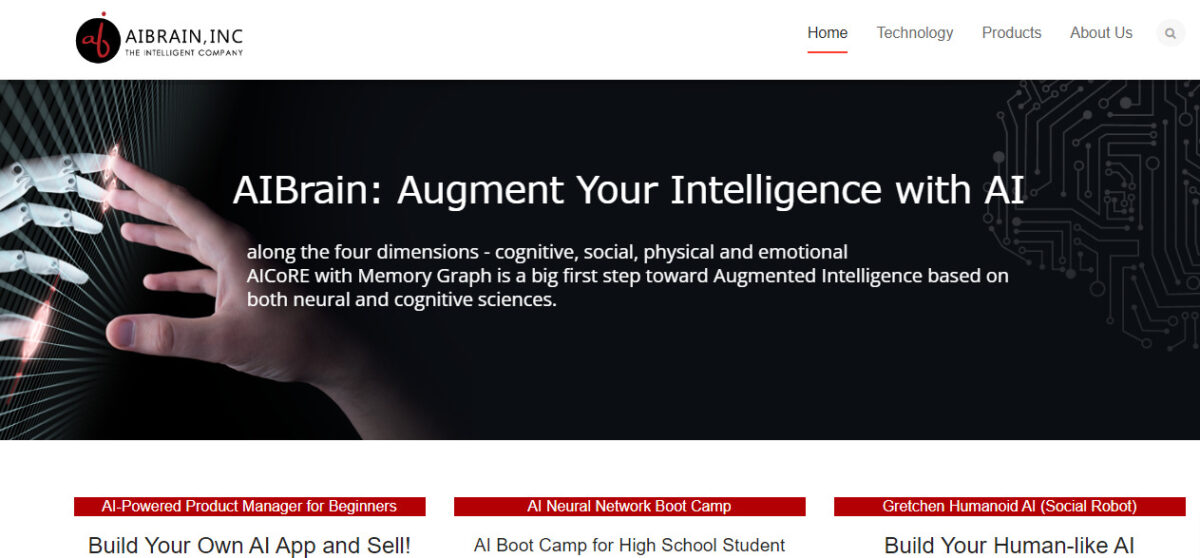
AIBrain’s vision is to “augment human intelligence with AI,” or augmented intelligence. Its products are geared toward enhancing human intelligence along the cognitive, physical, social, and emotional dimensions. It developed the AICoRE (Adaptive Interactive Cognitive Reasoning Engine), which imitates and automates human reasoning, and the Memory Graph, an AI memory system.
It also created products to promote learning for children, such as Tyche, SMILE, and Futurable, a game where every character is entirely AI. Tyche is a smartphone AI robot marketed as “the ultimate family companion,” while SMILE (Social Mind for Intelligently Learning Emotions) is an app that can train children on social-emotional learning skills.
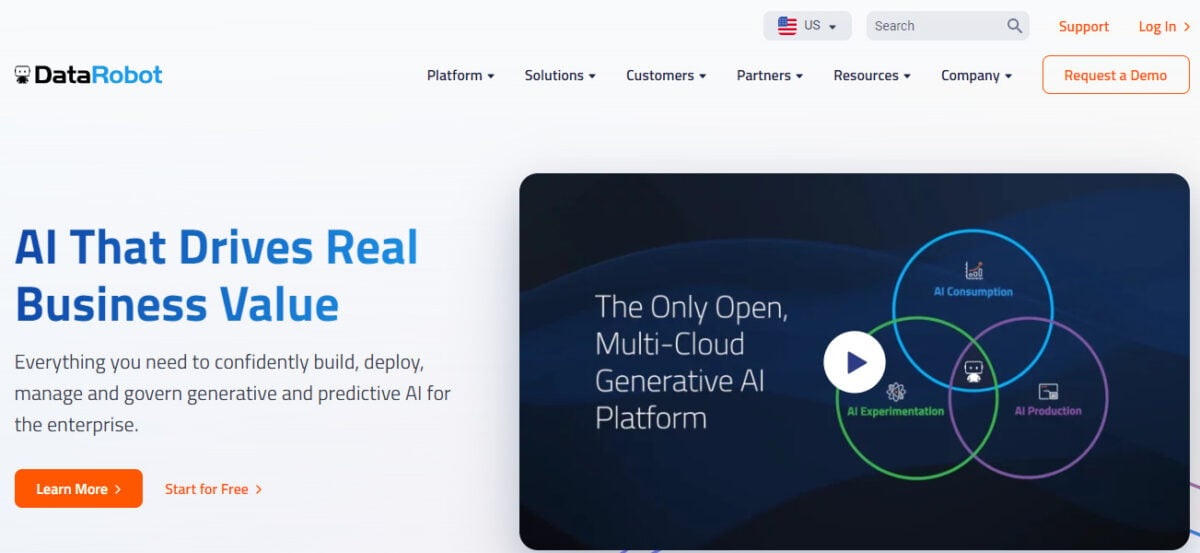
With its user-friendly interface and robust automation capabilities, DataRobot gives customers the tools for analyzing data effectively through machine learning models. Its platform is a full AI lifecycle model for predictive and generative AI that can be used in various industries.
DataRobot’s target is value-driven AI that businesses can use for data-driven decisions, even without professional data scientists. DataRobot’s AI platform is used in many industries, including healthcare, manufacturing, the public sector, telecom, sports, and marketing.
Innovative AI Companies for Health and Medicine
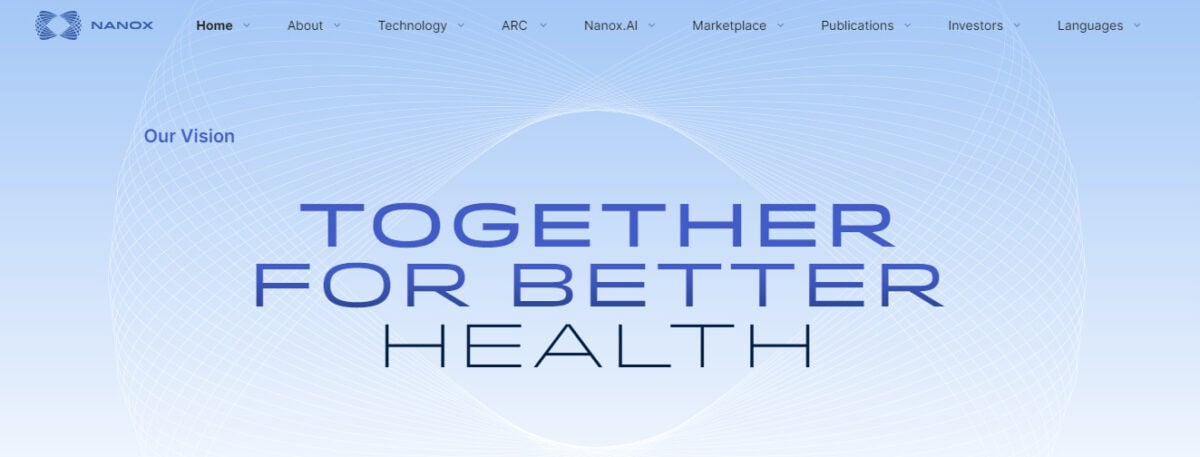
Nanox provides advanced, AI-enabled medical imaging technology that helps healthcare professionals detect and diagnose diseases earlier and more accurately. Its medical AI technology uses extensive medical image data to identify early signs of chronic diseases, notably cardiac, bone, and liver. It also integrates seamlessly with clinical workflows and lessens healthcare expenses. Early interventions also mean a better quality of patient care, reducing hospitalizations and critical events.
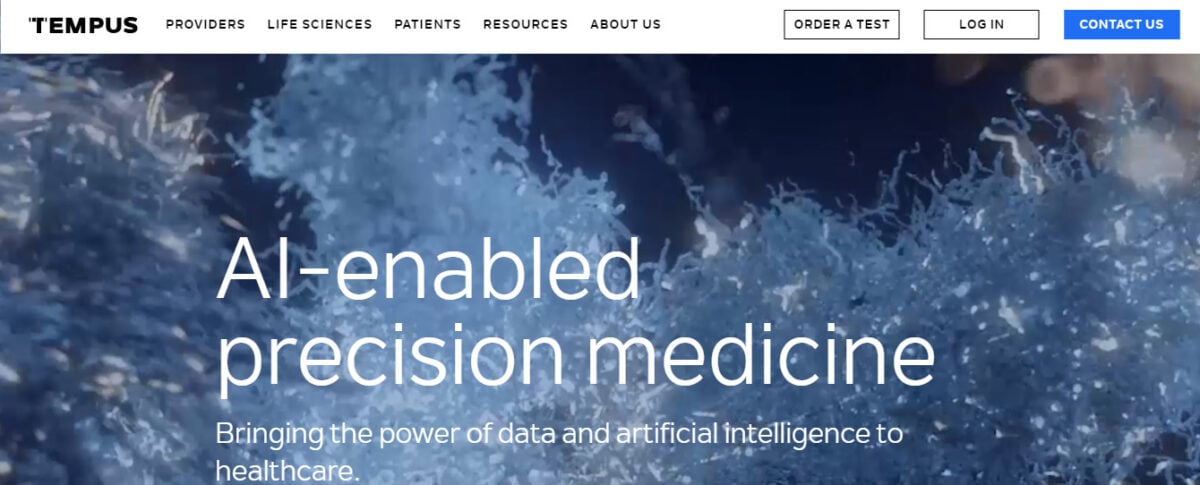
Tempus aims to change the health industry through AI technology by helping healthcare providers make data-driven treatment decisions, allowing pharmaceutical companies to develop drugs more efficiently and effectively, and guiding patients to select the best therapy options that suit their needs. From its initial goal of focusing on oncology, the company has expanded to include neuropsychiatry, cardiology, infectious disease, and radiology. It aims to ensure that every patient is “on the right drug at the right time.”
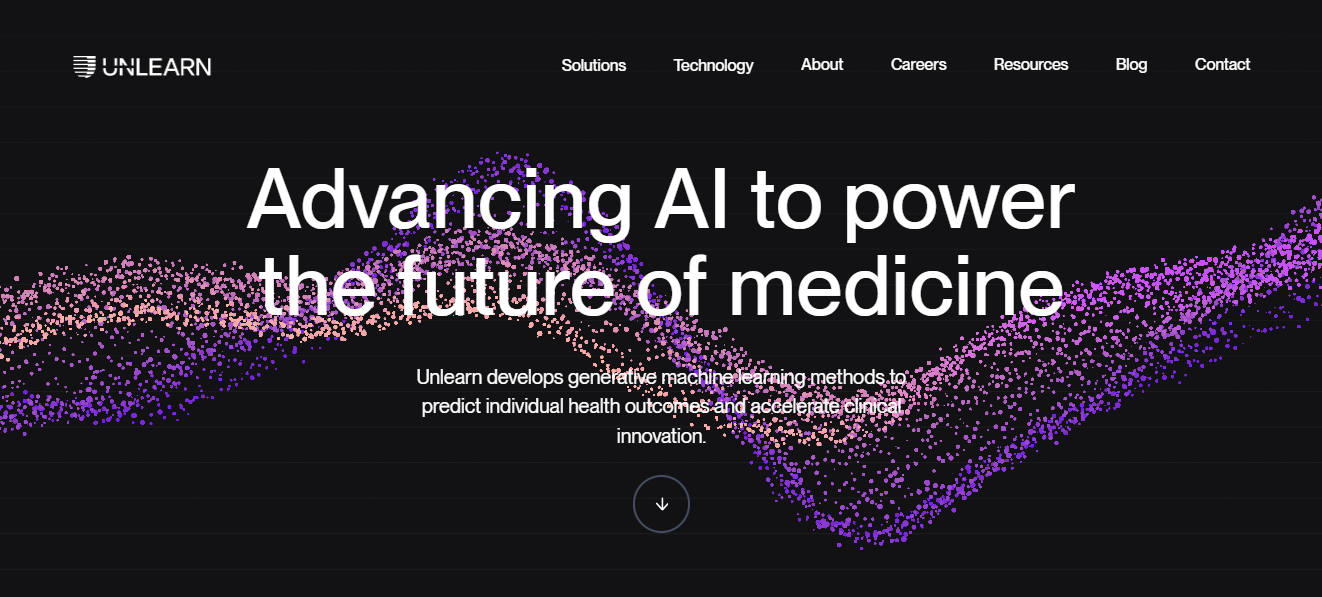
Young startup Unlearn was founded just recently in 2020, yet its contribution to medical technology is already stirring waves. The company’s generative machine learning model creates computer-generated digital representations of clinical subjects called digital twins. This innovation can produce different prognoses of patients based on accurate clinical data.
Aside from patient care, digital twin technology also has applications in clinical trials. Generating digital twins for trials leads to smaller control groups, which lessens research costs and speeds up experiments. For pharmaceutical groups that are testing out new medicines, this technology can shorten trials and bring life-saving drugs to the market more quickly. Because of this, Unlearn has already established partnerships with many pharmaceutical companies, and its AI technology has been used in clinical trials for Alzheimer’s, Parkinson’s, and ALS, among others.
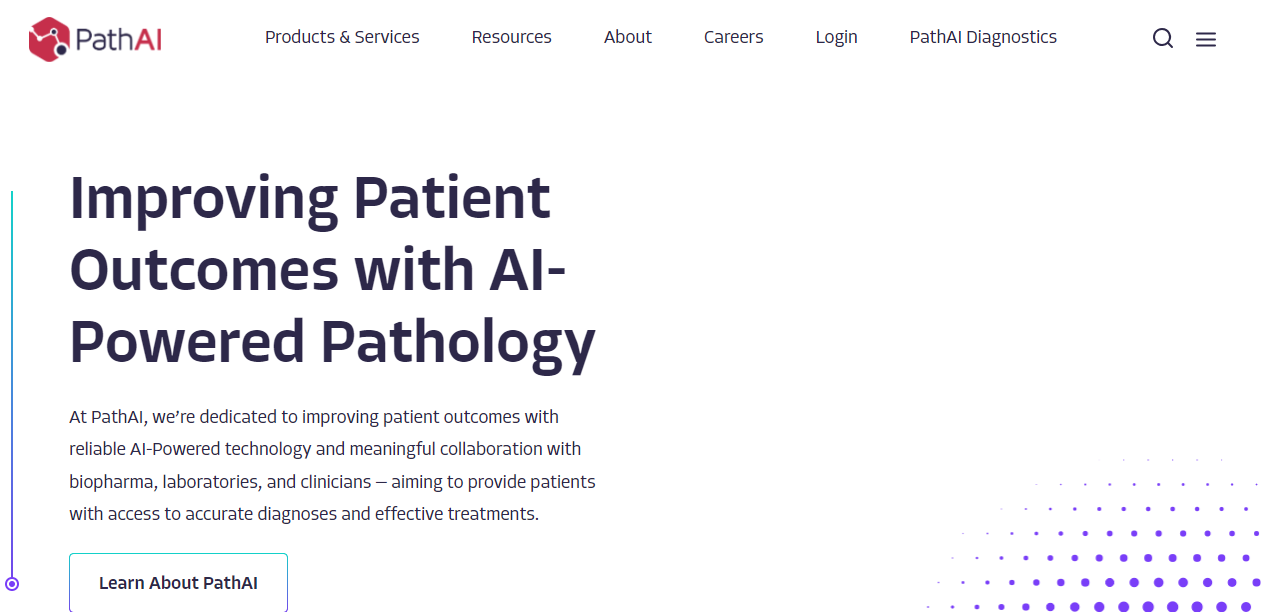
PathAI works to improve the science of pathology by integrating AI models into tissue analyses. Because it is in a niche field, its solutions are precise and explicitly targeted for pathology. Its AI is trained on data from over 15 million annotations from its proprietary pathology network. The goal is to improve diagnoses for patients through accurate tissue analysis, match patients with adequate and appropriate treatments, and fast-track drug development and approvals.
Innovative AI Companies for Law and Finance
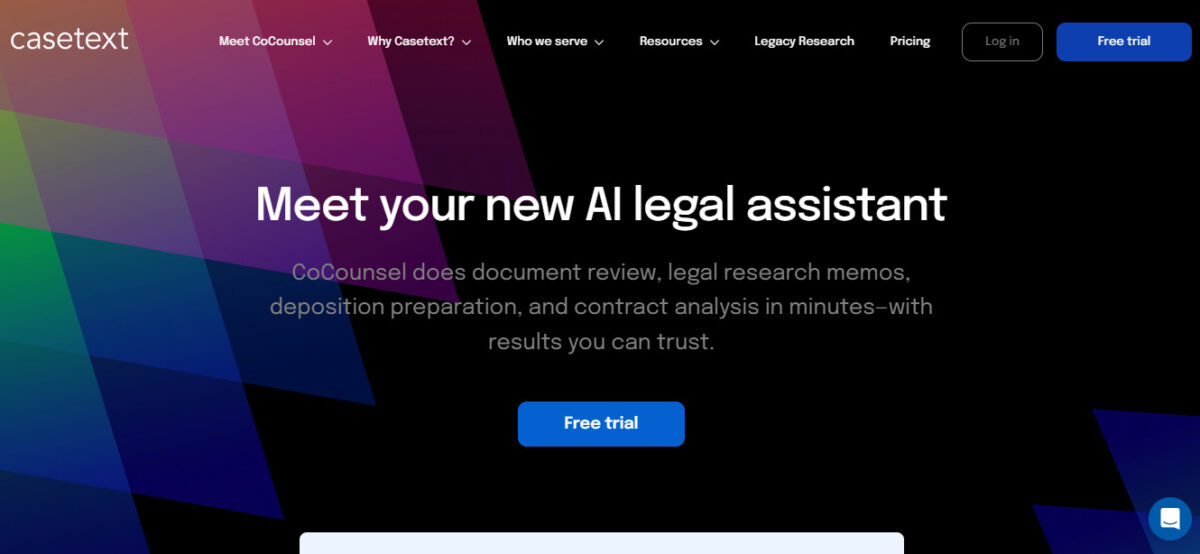
Casetext is the company behind CoCounsel—a virtual AI-enabled legal assistant. Like ChatGPT, CoCounsel is powered by GPT-4, a large language model created by OpenAI. CoCounsel can perform various legal tasks, including reviewing documents, drafting legal research memos, preparing for depositions, and analyzing contracts. CoCounsel was created in collaboration with lawyers to ensure the technology will be a valuable tool for legal professionals.

Fintech company Acrisure provides insurance, reinsurance, cyber services, and wealth management services for individuals and businesses. The company relies on AI-augmented human intelligence to hasten decision-making for time-sensitive issues and identify, mitigate, and respond to security risks. Because it leverages AI technology for risk assessment and cyber security services, it can process data quickly and deliver personalized customer service for all its clients.
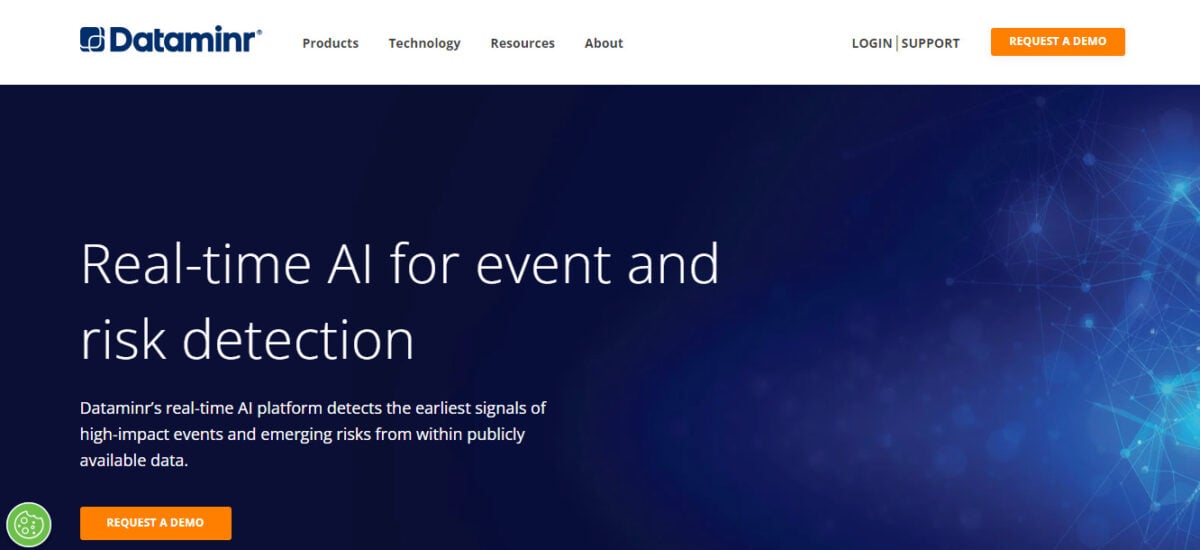
Dataminr detects high-impact events and possible risks and threats within the public domain. It’s a beneficial and innovative technology that allows different industries, especially the public sector, business, and news, to be as vigilant as possible and to prepare for any scenario.
The company’s AI platform uses a multi-modal AI fusion method for real-time event detection. This means that the technology, using deep learning, obtains several types of public data input and combines it with multiple fields of AI. This results in a more accurate event detection based on available public information.
Innovative AI Companies for Manufacturing, Logistics, and Operations
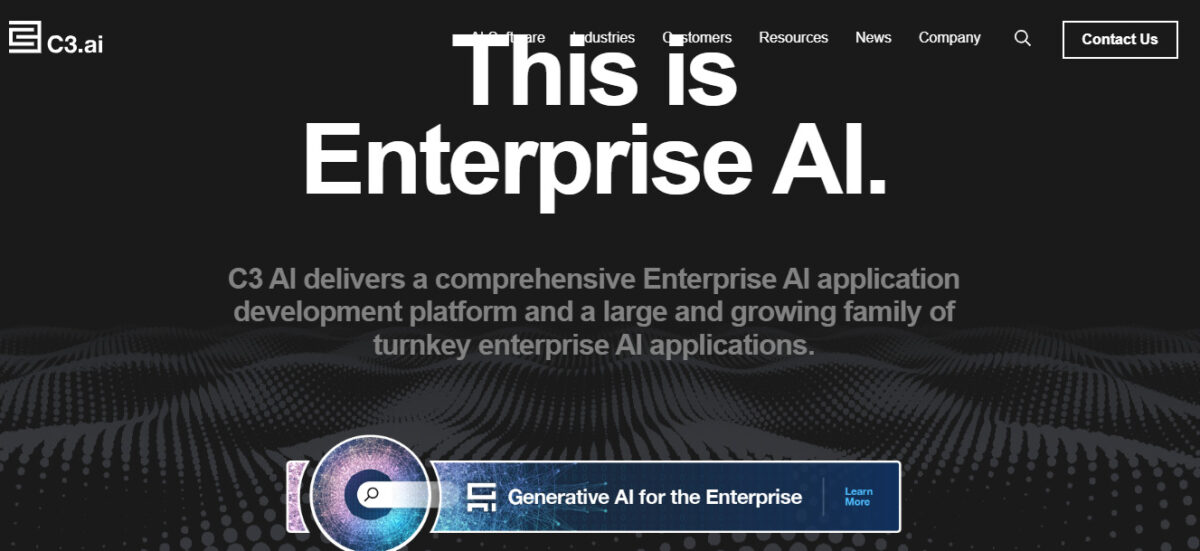
C3 AI’s turnkey enterprise AI solutions are built for businesses in manufacturing, utilities, financial services, government, agribusiness, and others. The company has dozens of AI-driven software that can streamline operations and organize data efficiently. Some of its AI solutions include applications for supply chain, sustainability, reliability, and CRM. In addition, it has generative AI that can perform search and chat to help customers locate, retrieve, and act on enterprise data.
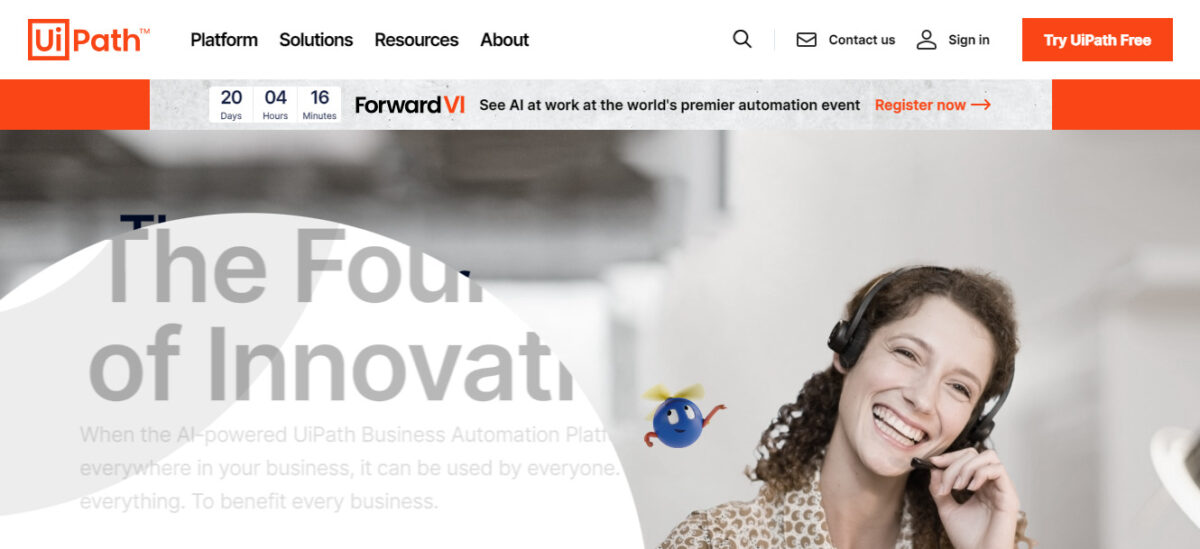
UiPath specializes in AI-powered robotic process automation for businesses. Companies can improve their operations and innovate quickly with their Business Automation Platform. Businesses can uncover opportunities for operational improvements and identify the most cost-effective areas and tasks they can automate. The Business Automation Platform is an enterprise-level, full-service platform that includes everything businesses need to automate and operate seamlessly.
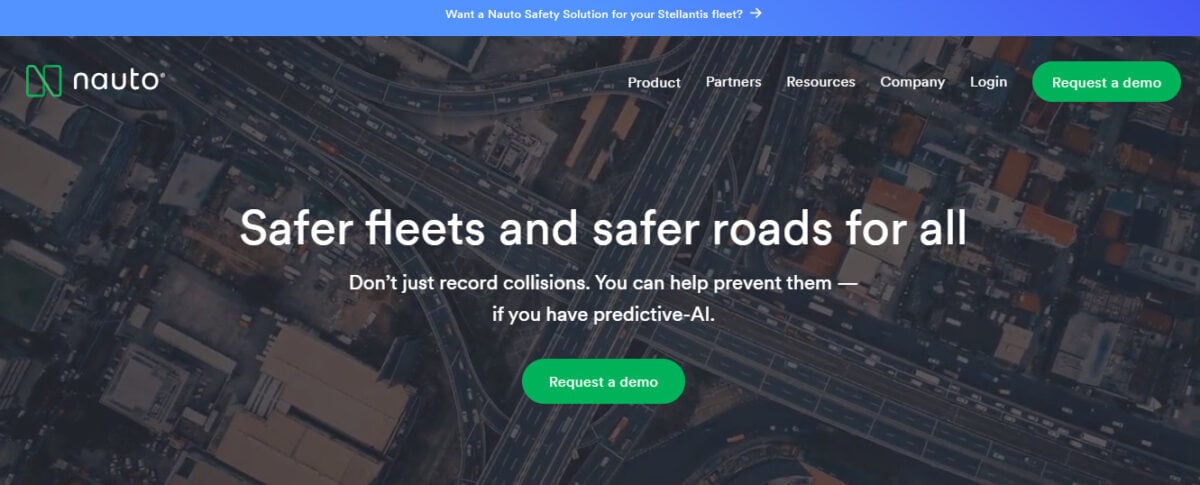
Nauto uses AI technology for road and driver safety and fleet management. Using in-vehicle predictive AI in dual-facing cameras, Nauto can sense external conditions and context, detect distracted and drowsy driving, and alert drivers about road risks to prevent accidents. It does this without invading drivers’ privacy, as Nauto only records collisions and high-risk events. The company claims up to 80% reduction in accidents and losses for customers using its product and an improvement in driving behavior.
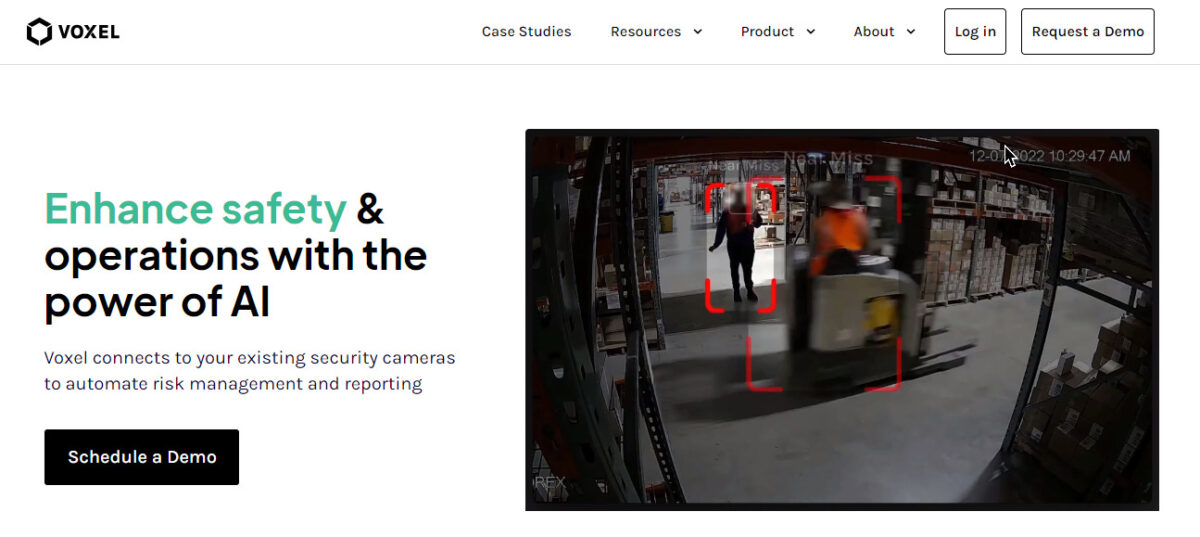
Another startup on the list is Voxel, an AI company founded in 2020 to improve workplace safety by analyzing videos and identifying potential risks and threats on worksites. Its AI technology can analyze the ergonomics of the factory setup and provide assessments on indicators of musculoskeletal injuries, such as improper bending and overreaching. It can also alert companies of environmental hazards, like a blocked aisle or a spill, so that they can manage high-risk areas more safely, as well as vehicle safety and proper usage of PPE.
AI in the Future
These innovations make it easier to think about how AI can shape the future. With its market size expected to grow to $407 billion by 2027, we can safely say that the future is AI. Whether it’s growing your business or diagnosing chronic diseases, AI has a role in every field. The companies on our list recognize that and have devoted their resources to developing the most cutting-edge AI technologies to help the world and take us to an exciting future where human and artificial intelligence work harmoniously.
Frequently Asked Questions
What classifies as an AI company?
Companies that leverage AI in their services and operations or produce AI technology for customer use can be classified as AI. Our list includes both kinds and is meant to illustrate that AI has broad applications across different industries.
How do AI companies approach ethical and security concerns?
Many experts are concerned about the ethical issues stemming from the misuse of AI. Fortunately, these concerns have not been brushed off by AI companies. Many have adopted what is sometimes known as “responsible AI,” an approach for using AI in both legal and ethical ways.
Responsible AI includes transparency in AI decision-making, data privacy, and addressing bias and fairness concerns. Ethics committees are standard in some AI companies to ensure compliance with existing rules and regulations.
Will AI companies affect the job market?
Yes, AI companies and AI technology will impact the job market. Some jobs may be disrupted or even eliminated because of automation, adversely affecting workers in those job markets. However, AI can also create new jobs and generate a new workforce with unique skill sets.
It’s up to the AI companies and their industries to ensure minimal negative impact on their workers or to provide training for the new jobs they create.
lamhoangmedia.com | 2023-12-13 11:30:21 – influencermarketinghub.com
